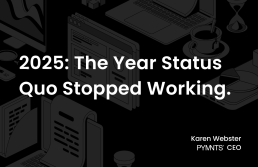In the gig economy, high turnover means heavy lifting for firms seeking the right candidate. And with rules and regulations governing various service industries — from finance to ride-hailing — background checks are part of the hiring job of hiring.
Against that backdrop, Checkr seeks to automate the process a bit by conducting background checks for thousands of customers.
Last week the company said it raised $100 million in Series C funding in a round that was led by T. Rowe Price. The company also said it signed Lyft to its client roster, nestled right alongside Uber.
In an interview with Checkr Co-Founder and CEO Daniel Yanisse, the executive said that his own hiring experience in Silicon Valley gave shape to Checkr, with the realization that inefficiencies marked the traditional hiring process.
“Background checks were tedious, done manually and took too much time,” he told PYMNTS. The result was (and is, for those firms who adhere to manual processes) a slowdown in the hiring process on both sides of the equation, especially among companies with a flexible workforce like the gig economy.
“There had to be a more streamlined solution to provide accurate, transparent and fast background screenings. For an employer needing to hire quickly, waiting several weeks for a background screening in order to hire a driver for an on-demand job could lead to the demise of their company,” he said.
Advertisement: Scroll to Continue
Technology plays a role in streamlining the process, he stated.
“We’ve taken unorganized and inconsistently categorized data, and through our technology — and the use of machine learning — have created a streamlined, accurate platform that increases the speed, insights and accuracy for our customers.
“We’re evaluating driving records, criminal records at the county, state and federal level to empower our customers to make fast, accurate decisions,” he continued. “We also offer additional compliance and screening services, including drug, education and employment verification, depending on the needs of a specific customer or industry,” he added.
With unemployment at a 17-year low, he said, “companies are vying for talent, and in turn we’re working to keep pace. We’ve been able to streamline the current background check process from a couple weeks to within a day, allowing for a faster applicant experience.” In just four years, the company has been able to scale to run 1 million background checks per month for more than 10,000 customers.
The CEO was quick to acknowledge the use of algorithms and machine learning can consistently boost the performance of Checkr’s platform. “But in the end, background checks are not a silver bullet. They do not guarantee future performance nor predict behaviors — we’re not living in the world of Minority Report.”
Background checks, he said offer challenges with several factors to evaluate against. “We’ve made huge steps in making the process more accurate and relevant,” he told PYMNTS.
Case in point: When it came to individual job applications, drilling down below the surface of process, Yanisse said Checkr has noticed that, in significant numbers, applicants were having trouble landing jobs due to something in their past, which should not and need not impact the ability to do the job for which they were applying.
“We saw an opportunity to be a positive force in the job market — to focus on eliminating bias and championing a fairer future through fair chance hiring for the 70 million Americans with a criminal record,” he told PYMNTS.
With the $100 million in Series C funding in pocket, the company will look to expand its presence in the enterprise, and “a big focus for us will be expanding the role of artificial intelligence in our background check technology, increasing speed, data insights and accuracy for our customers and aiming to nearly double the Checkr team in 2018,” he told PYMNTS.
And looking ahead, he said “in five years, our hope is that background checks will look very different. Instead of taking days to receive a background check, they’ll be instant … Ultimately, we’re working toward ensuring that those seeking employment — including those from historically disenfranchised populations — will have the dignity and empowerment of work.




